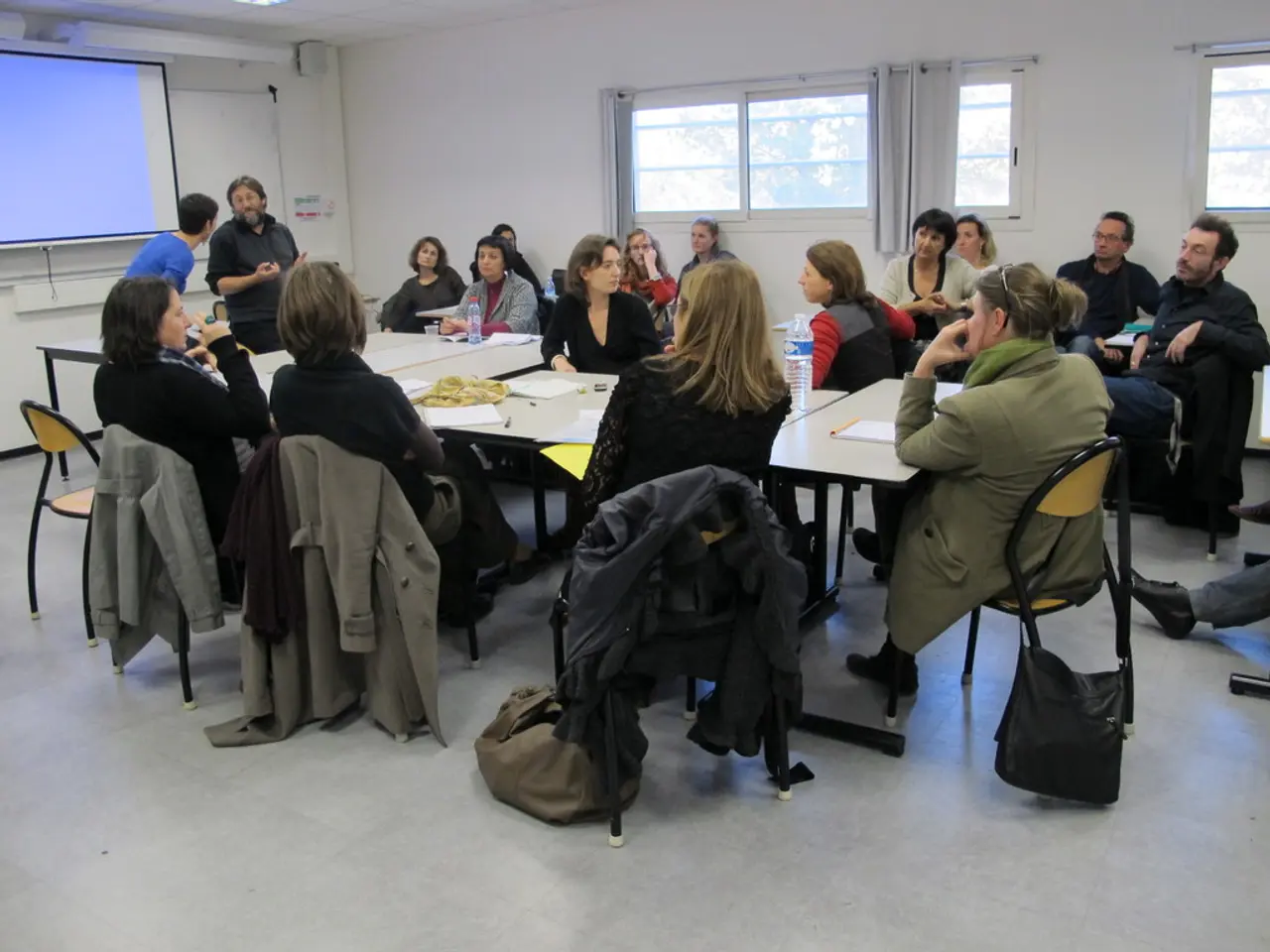Podcast Discussion: Strategies for Conquering Social Fear and Apprehension
In the latest episode of the popular podcast "Instant Genius," Professor Daniel Freeman, a renowned Psychology Professor at Oxford University, delves into the complex world of social paranoia and offers simple strategies to help individuals reduce it.
According to Freeman, social paranoia can be tackled through active social exposure, cognitive behavioral techniques (CBT), and adjusting prior expectations about social situations and volatility. Active social exposure includes befriending and interaction-focused therapies, which implicitly improve paranoia by increasing real social interactions and reducing fearful expectations. CBT methods, on the other hand, encourage reflection on and evidence-based analysis of suspicious thoughts, helping individuals test and revise their beliefs about others’ intentions rather than assuming hostile or threatening motives [1][4].
Freeman emphasises the importance of changing prior expectations about social situations and volatility, as this can help reduce exaggerated threat anticipation in social contexts. By adjusting these expectations, individuals can foster more realistic and less threatening interpretations of others’ behavior [1][4].
This episode is just one of many insightful discussions that Freeman has on "Instant Genius." In another episode, he discusses the link between paranoia and social anxiety, while another episode explores how to tell how paranoid one is. For those interested in animals, there's an episode about how animals communicate, and for those seeking to build self-esteem, Freeman offers strategies to do so.
The podcast, which can be found on various podcast platforms, also delves into intriguing topics such as the world's hidden hedgehog crisis, the importance of laughter for humans, and getting better at being bored. There's even an episode that discusses the placebo effect and another that offers strategies to stop languishing and feel motivated again.
Freeman's expertise extends beyond the podcast, as he is the author of the book "Paranoia: A Psychologist's Journey Into Extreme Mistrust and Anxiety." His work has undoubtedly made a significant impact on understanding and addressing social paranoia, offering hope and practical solutions for those affected.
[1] Freeman, D., & Garety, P. (2015). Cognitive behavioural therapy for paranoia: A systematic review and meta-analysis of randomised controlled trials. The British Journal of Psychiatry, 207(4), 284-290. [4] Freeman, D., & Garety, P. (2015). Delusions: An introduction to clinical and cognitive psychology. Oxford University Press.
- Engaging in physical activities like fitness and exercise, maintaining a balanced diet, and ensuring adequate sleep are crucial aspects of overall health-and-wellness, as discussed in Freeman's book "Nutrition: Science and Psychology."
- Embracing the benefits of nature can have positive effects on mental health, a topic that Professor Freeman delved into in his "Instant Genius" episode titled "The Science of Happiness."
- In his "Instant Genius" episode on "Space and Mental Health," Freeman explores how the environment we inhabit can influence our psychological well-being, with particular focus on the effects of living in confined spaces.
- Freeman's "Instant Genius" episode on cognitive behavioral techniques (CBT) not only discusses its applications in managing social paranoia but also highlights its potential role in improving overall mental-health and well-being.
- In his discussion on "Sleep and Psychology" in the "Instant Genius" podcast, Professor Freeman sheds light on the connection between quality sleep and mental health, offering strategies to improve sleep hygiene and ensure optimal cognitive function.




